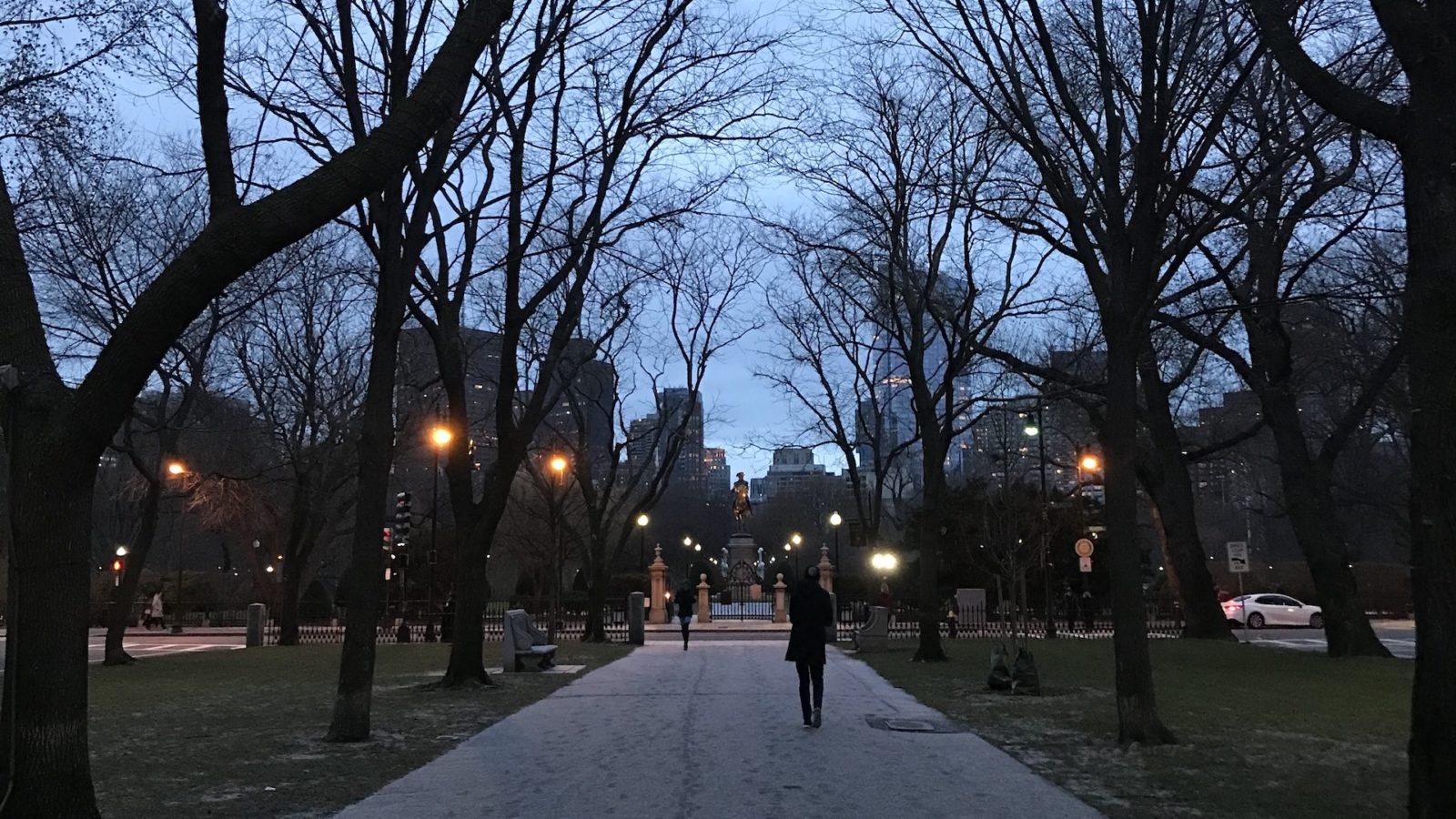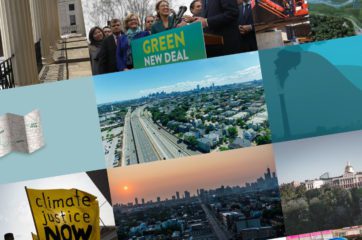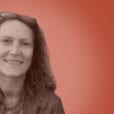Laura Teicher is one of the newest members of our Board of Directors, she is the Executive Director of FORGE, a non-profit manufacturing initiative founded at Greentown labs. Forge was founded to create value for both start-ups and suppliers through foraging connections and helping entrepreneurs manufacture locally.
Laura is a purpose-driven leader with a record of execution; who is passionate about problem solving, value creation, and creative solutions. We talked with her about her background, and her hopes for impact in joining our board.
Maria Virginia Olano
Hi Laura, thank you so much for making the time to talk with us today and share about yourself.
Laura Teicher
Thank you for having me.
Maria Virginia Olano
Can we start off by you telling us a little bit about your background and career path, and where you’re at today?
Laura Teicher
Absolutely. I’ve always been very impact-oriented, but I would say the path to the leadership role I’m in now, Executive Director of a non-profit, has been a little bit unusual. In my undergrad, I actually studied studio art and English. A little unusual. I didn’t know what I wanted to be when I ‘grew up’, I just knew I liked reading and drawing and painting, and so I did that for a few years. When I graduated, my first full-time job was actually working for a Massachusetts State Senator. I did that for a few years for one Senator and then another, and then I felt that I was sort of hitting the ceiling with my growth. I was becoming more ambitious and interested in impact leadership, I was doing a lot of volunteer work and getting into leadership roles, but I was a little stuck as far as getting the next progression of role in my career path.
At that point I decided to pursue my MBA. I went to business school, and when I got out of business school, I worked at a financial firm for a few years, managing business operations as it was scaling up. At the same time I continued to volunteer with impact-oriented organizations and grew into progressive leadership roles both at the financial firm and at Net Impact, which is an organization for people who want to use their careers for positive impact. So I ultimately became president of the Boston chapter, and that combined with some policy experience, some experience scaling and growing a financial firm, my business degree, and then getting into those really high leadership roles on a volunteer level, all of that together is actually what allowed me to maneuver into Executive Director-type roles. I would say it was partially planned and intentional, and partially lucky for me that I was able to take that slightly meandering path to get where I am today.
Maria Virginia Olano
I think it’s so fascinating. When I was kind of researching you before the interview, I saw you did have that experience in government work and then also the private sector, and now the nonprofit space, which are the three areas of work that we often talk about in terms of change-making for the long term. It’s like the three industries or areas of work that have a role to play, so it’ll be interesting later in the conversation to learn how you see all of them to be levers for change.
In terms of your role now at FORGE, can you tell us a bit about what projects you’re working on that you’re excited about and what Forge is for those who are not familiar?
Laura Teicher
Absolutely. FORGE is a nonprofit, and our mission is to help innovators with physical products, things that are made physically, not pure software innovations. Things like medical devices, robotics, clean tech. We actually help these innovators to prepare to manufacture at scale, which is very, very different from early prototyping and testing. And then we connect them with the right local, regional manufacturers and supply chain experts to get their product made close to home. This actually gives the innovators we work with a real leg up. There’s a lot of organizations out there that are designed to help startups and innovators, but they often focus on business plans and there is often a bias in the ecosystem towards highly scalable software. When you’re actually trying to build something, which is what it takes to solve problems in the physical world like climate change, there are added barriers to scale. It costs more money up front, you can’t fail fast and pivot the way you can in software, it’s much more expensive to change your design.
So it turns out what we do at FORGE is really unique and powerful as far as helping these innovations make it through the valley of death, not burn the runway on wrong designs, and then connect with local manufacturers, which allows them to have a more collaborative relationship. You know, drive over, see the first run off-the-line, communicate really clearly about the design, collaborate around it. And of course, one of the things I love about our work as well is that you’re organically reducing carbon footprint because you’re not shipping overseas with worldwide suppliers, and you’re stimulating the local economy, both on the innovation side and on the manufacturing side. So it’s many, many impact bottom lines.
I’m pretty excited about everything we do at FORGE. Because it has so many levels of meaningful impact, including helping these innovations to really survive at a pretty incredible rate of over 90%. Pretty effective intervention. But I’m really excited about the things we’re doing within the team to look at expanding our reach as far as new demographics, new geographies, and then adding new tools and approaches to further empower both the innovators and manufacturers that we work with. We’re cooking up a lot, and there’s never a dull day.
Maria Virginia Olano
I can imagine, and especially right now, when there’s so much appetite for these kinds of innovations and so much need for them as well.
I’m curious, at what point in your life or career did you see climate and the climate crisis as a space that you either wanted to get into or fell into, and why do you feel that work is so important?
Laura Teicher
It’s something I’ve been passionate about since I was a kid. I didn’t necessarily know it would be my career path, but I always cared a lot about protecting the natural world, animal rights, and preserving nature. I think probably it has something to do with the ethos of my mother. She is a lawyer, and she has always primarily worked in municipalities in a lot of wetlands and land protection work. I think that must have had an osmosis effect for me. But I’ve been very active on these issues since a young age and I feel really lucky that I have been able to merge my career with this passion, but I didn’t always know it would be my work. For example, I’ve been a vegetarian since I was 12, and I got involved with trying to bring local produce to my undergraduate campus instead of having as much global shipping – that was actually my first exposure to this idea of the carbon footprint that comes with moving things across the world. And I just feel really lucky that I get to actually do work that is impactful here. I can’t remember a time when I didn’t care about it.
Maria Virginia Olano
That’s amazing. I share that feeling of luck that I get to work on something that I am deeply passionate about and that I see as a huge need currently. Which brings us to your involvement at Climate XChange. Do you want to share how you learnt of the organization and how you came to join the Board?
Laura Teicher
Absolutely. I’ve been aware of the organization for many years through my work at Net Impact as a volunteer. The Executive Director of Climate XChange and I would cross paths occasionally. I was always really impressed with both the entrepreneurial leadership of the organization and over time as I’ve had the chance to learn more, the deep, deep policy expertise. As lucky as I am to be doing impactful work, the work that I’m doing doesn’t intersect currently, deeply with actual climate policy decisions. When I was approached to join the Board, I was excited to contribute in any way I can, but also become more fluent and increase my depth of knowledge in the most cutting-edge climate policy issues. So I saw it as an opportunity to contribute beyond what I was already doing in my day job, and an opportunity to keep learning.
Maria Virginia Olano
We are so excited and so lucky to have you on the Board with the breadth of experiences that you bring, and also helping us mold the organization into the future and the strategy of how we think about this work moving forward.
I would love to know, either within Climate XChange or in the movement more broadly, what are some of the areas where you see the most potential in this current moment, for change?
Laura Teicher
Obviously, we are at a pivotal moment with our new President-elect. I am thrilled to see him coming out loud and proud with stated priorities of controlling the coronavirus first and foremost, but then ensuring economic prosperity for everyone, equal access and equitability, and really a clear commitment to addressing climate change. This has clearly not been a priority of the outgoing administration. It’s a huge relief to know that on day one of the new presidency, for example, we will be resigning on to the Paris Climate Accord.
I think that with the stated priorities of the President-elect, there is going to be a lot of opportunity for organizations like Climate XChange and Forge to help shape policy and deploy new funding that will have a meaningful impact on these issues that I think we’re all passionate about.
Maria Virginia Olano
Absolutely, and I think we all sighed a huge sigh of relief with the outcome of the election just because of the massive stakes that were at play and will be in the coming years as our window of opportunity shrinks.
I’m really curious to hear from you – one of the things we’ve heard from policy and climate experts recently, and the Biden team, is that climate action is in fact a way to boost the economy, to increase jobs, to promote innovation, and just better the lives of communities and their economies, which is often at odds with the more traditional view of climate action as something that was costly, and that we’d have to sacrifice the economy in order to achieve it. I feel like you are very much where the rubber hits the road on actualizing those kinds of talking points. Do you want to paint a picture for us on how you actually have seen climate action be hand-in-hand with prosperity and innovation through your work?
Laura Teicher
Absolutely. I have a lot of different directions I can take this answer in, I’ll try to keep it to just a couple. One of the most common things that we hear from innovators when they start working with us is “I didn’t know that I could make this here.” So, there is often an assumption when you’re looking to manufacture something, especially among those who are new to manufacturing at scale, that you just have to go overseas. And sometimes you do, and we live in a global world, and that is going to be a piece of the puzzle, but what we have found, is that over and over again, innovators are pleasantly surprised at what they can make in their backyard. For example, there are over 7,000 manufacturers in Massachusetts alone. We have a pretty robust manufacturing economy. And what we find is that when we make these connections, after making sure that both the manufacturer and the innovator are ready and right fit and prepared, 75% of these companies keep coming back to us for more supply chain and manufacturing referrals. This means that they’ve seen an advantage of working locally, and we hear that from them all the time. I mentioned some of them before, but there are also costs that people don’t necessarily calculate up front, like tariffs.
At the end of the day, when you’re building a new product, being able to see it as new pieces come out, as new phases are deployed, makes a huge difference. And this is the perfect example of the rubber hitting the road, because so many people are not manufacturing locally because it just hasn’t occurred to them that they can. But when they do manufacture locally, they succeed, they help stimulate the local economy, and the overall footprint of the product is significantly less. That’s one really good example of how an action that creates positive environmental outcomes also creates positive business outcomes and economic prosperity. But it’s not something that is being leveraged at scale right now, and that’s part of what Forge is here to address.
I would also say that we’ve consistently seen more and more interest in the manufacturers and suppliers that we’re working with in doing things like installing solar at their factories, because it’s more cost-effective at this point. The impetus isn’t always saving the environment, sometimes it’s saving the bottom line, but still, that is what is happening right now, it’s actually more affordable in some cases to green some of the processes that are happening at the manufacturer.
Maria Virginia Olano
Absolutely, and i think that’s what is so exciting right now, is the innovation in clean technology and clean energy has gotten us to a point where it is no longer a sacrifice, it’s actually cost-competitive, and in so many ways, the right option for any variable you want to see.
On the flip side of this, where do you see the bottlenecks, or where do you see the obstacles that still remain unaddressed in this transition to a clean economy?
Laura Teicher
There is that assumption that the way we’ve always done it is the best way to do it. So there is disrupting this assumption and bridging the gap and making connections to do it differently and better for the environment and for the business. But there are still instances where it is cheaper for the company to do the wrong thing. They are not experiencing the pain that they’re creating if they’re choosing a more polluting process, but it costs them less money. And this is part of where the work at Climate XChange is so important.
Maria Virginia Olano
Yes, absolutely. And it’s interesting to think about the systems that are in place to keep some of those truths remaining a reality, in terms of just the massive amounts of subsidies and public support that some of these companies get, while at the same time, some people criticize ‘progressive’ or ‘socialist’ policies because of that same reason. There are definitely a lot of incentives still at play that are skewing the balance for some of these polluting industries to continue to exist.
In terms of the work that you have undertaken with the board, what are some of the things that you’re most excited to help us do in the short and long term?
Laura Teicher
That’s an interesting question. I think one of the unique perspectives I bring to the Board is being a nonprofit leader myself. I’m the only Board member who is Executive Director at another nonprofit, and I found that to be really valuable in the discussions that we have around sharing best practices, whether that be new fundraising models, or improved ways to engage the team. I think there is this great exchange of ideas, and I don’t believe that anyone on my current Board is an Executive Director role at another organization. I mean, there are folks in leadership positions and involved with nonprofits, but I think there is something really helpful about Executive Director to Executive Director and Executive Director to Board, just sharing best practices. It’s something I’ve always been a big advocate for and tried to on a more casual basis within my network, but I think there is a lot of opportunity for learning between the two organizations, Forge and Climate XChange, and I’ve already seen that in action a bit in the short time that I’ve been on the Board.
Maria Virginia Olano
Absolutely, and I think it’s a brilliant and much-needed perspective, as you say, and kind of a point of view that is going to be valuable hopefully, to help the team grow and evolve into this new year and new work that lies ahead. We touched on this at the very beginning, but given your unique experiences in public, private, and nonprofit spaces, do you mind telling us a little bit about how you now view the roles of each one in undertaking the massive challenges that we’re currently undertaking?
Laura Teicher
That is an excellent question. You know, nonprofits exist to fill a gap that neither the free market nor the government can. They all have their role to play. I think one challenge we’re up against universally, at least in the US right now, is each one of these sectors acting like a business. There are a lot of good lessons that a nonprofit can take from a business. I try to continue to diversify revenue, and apply other lessons that I’ve learned from my time in the private sector and studying business. But there is a reason why there are these three different sectors, they really do operate in different ways. The funding models are different, your average nonprofit cannot sustain itself on earned income alone, or it would be a for-profit. And your average for-profit might be doing things that are harmful to others, and they’ll keep doing that if it’s not harmful to them unless the government steps in. I think the private sector is held up as the holy grail these days, but the government exists to help mitigate unintended harm and the things that aren’t controlled by the free market, and the nonprofit sector fills in the gaps.
At my organization Forge, the work we do, we do at no cost to the innovators, and that allows us to help hundreds of impactful products come to market every year. If we start charging for it, oue impact plummets. If Climate XChange was trying to monetize everything they did, I doubt they would have as far of a reach as far as enacting policy work. So, it’s a really good question, and I think it’s one of the big challenges of the moment, is this harmful narrative that we should all operate like a for-profit business. If everything operates like a for-profit business, you don’t have the sort of checks and balances that you need, and it’s not an equitable outcome for everyone and everything, including the environment.
Maria Virginia Olano
That was a brilliant answer. And I think it’s a question that, you’re absolutely right, so many people are grappling with and thinking through, how organizations should operate and be sustainable internally, and this glorification of business as the way things should be. Which again, we are living through the harmful impacts of unchecked late-stage capitalism.
It’s definitely a lot to think about and grapple with. I’m curious, on a similar line but more personally, what are some of the lessons that you have carried throughout your work in different spheres that still guide your work today?
Laura Teicher
I would say that everything I’ve done has been about learning and evolving towards having maximum impact personally in my career, I’ve always known that was my North Star. But also interestingly, because we’ve talked about the three different sectors and my meandering path, I was always able to leverage a natural strength in systems thinking, whether you’re talking about policy or operations or leading and organization, it’s an asset to be able to see things in terms of systems and identify where there are opportunities for growth and improvement and run at them full speed. But I think one of the most important lessons I’ve learned as I’ve been in progressive leadership roles over recent years is still systems thinking, but it’s more interpersonal systems thinking.
I think when we’re really young, it’s easy to feel frustrated or avoid it when there are pockets of tension, but I’m a really big believer, and I credit all the entrepreneurs I’ve spent time around with my ability to learn this, but when I feel resistance with a key stakeholder, or there is clear frustration within a team, to me that is a signal of an underlying systems problem but it can be a little bit more interpersonal. So, whereas when I was younger I might be frustrated or dismissive, today, when I find that a key stakeholder seems frustrated, I’ve learned that that’s a sign that there is an underlying systems issue and if I talk to them and lean into it and try to understand it, then it’s a lot more productive.
One of the most interesting things I learned years and years ago and it really stuck with me, is that the average team tension can be kind of chalked up to a systems problem, not an interpersonal problem, though it might feel like an interpersonal problem. So one of the things I try to do if I see or feel tension, whether it be with a funder, or a Board member, or a team member, is I actually go out of my way to spend more time with them and to understand what’s causing the pain or causing the confusion. And spending that extra time building the relationships and trust up front, it is systems thinking. But when I was younger I was much more focused on the actual software or process or spreadsheet. And taking the time to understand where resistance is and mitigate it up front, build that trust, has actually unlocked a whole level of productivity. I guess that’s a little bit of an abstract way to describe it, but I think it’s so important for us goal-oriented nerds out there to slow down and say, ‘Okay if this thing is frustrating or this thing is hard, how can I dig into that and fix it and problem solve and be entrepreneurial?’ And that approach of ‘something is the thorn in my side so it’s what I’m going to put time and intent and relationship building into,’ has really elevated my ability to lead organizations.
Maria Virginia Olano
Well, I think that’s my favorite answer to this question that I have received, and it’s clearly right in that answer what makes you an effective leader, because you’ve nailed it, it is about people. And most of the time, a different way to think about this is you need to focus on the forest and not the trees. You need to focus on the larger issues that are causing this specific moment of tension or frustration. So that’s brilliant, and thank you so much for sharing.
I always like to end these conversations with a very similar question. You’ve talked to us about the impact that drives you, and I’m curious when you see the outcome, the end goal of that impact, what does the future that you’re working towards look like?
Laura Teicher
It is more equitable for everyone and also sustaining of the beauty and the diversity of the natural world that we live in.
Maria Virginia Olano
I like that, I like that a lot. It was very succinct and I think it encompasses the overarching goals that we share. So Laura, thank you so much for taking the time out of your Friday to talk with us, and I am excited to share your story and your insights with everyone on our side.
Laura Teicher
Thank you Maria Virginia, it was great chatting with you and I’m excited for what lies ahead for Climate XChange.
Maria Virginia Olano
Likewise, and excited to be having you on board.









